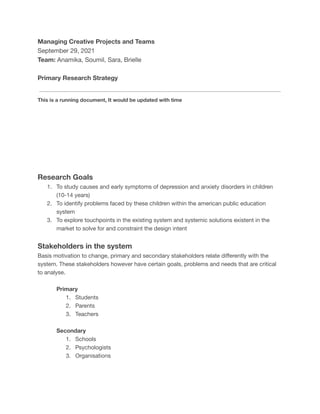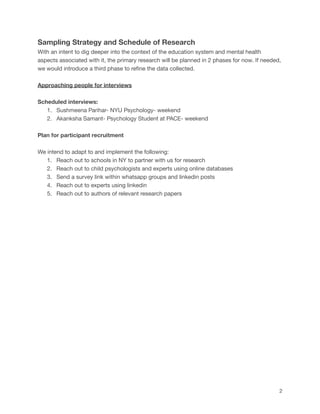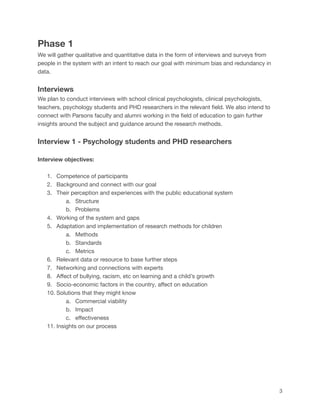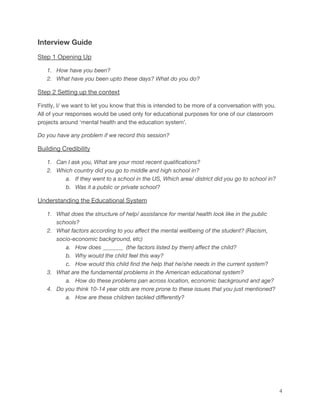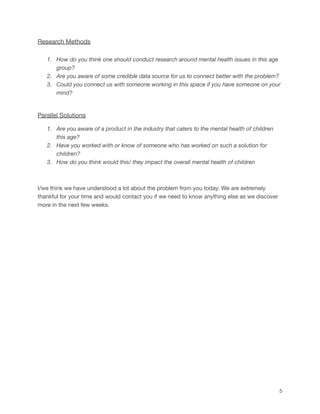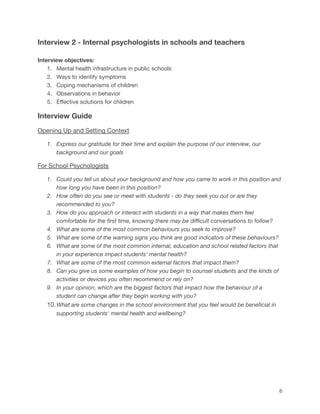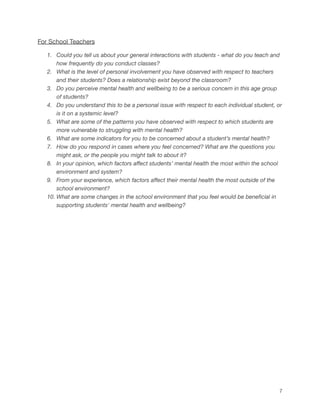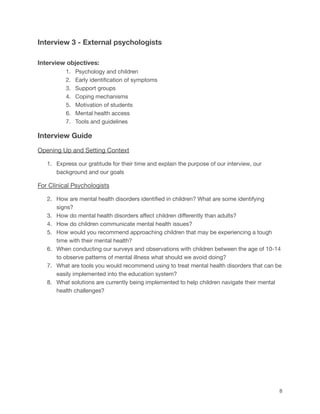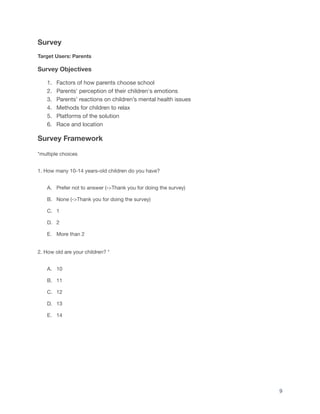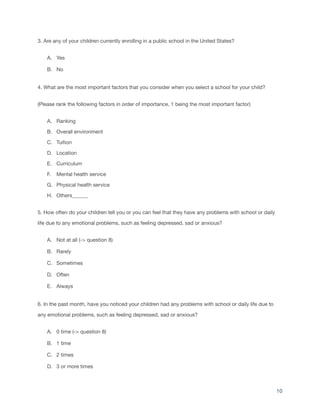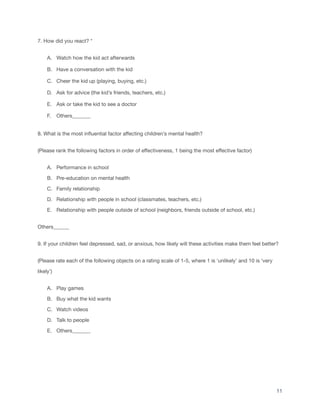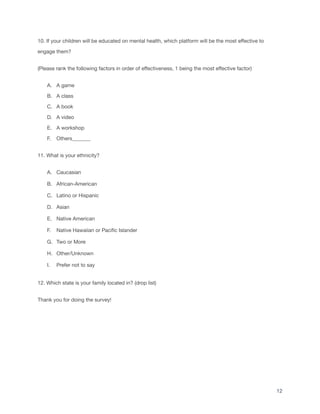This document outlines the research plan and methodology for a project studying depression and anxiety in children aged 10-14 in the American public education system. It includes details on stakeholder interviews and surveys with parents. The research will be conducted in two phases, starting with qualitative interviews of various stakeholders including school psychologists, teachers, and clinical psychologists. Interview guides are provided. A parent survey is also outlined to understand factors influencing school choice, perceptions of children's mental health, and effective approaches to education. The goal is to identify problems children face and potential solutions to improve mental health support.
